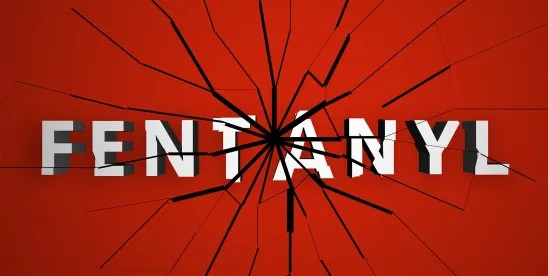On June 25, 2025, the Financial Crimes Enforcement Network (FinCEN) at the U.S. Department of the Treasury designated three Mexico-based financial institutions as primary money laundering concerns under Section 311 of the USA PATRIOT Act.[1] In the short term, this means that domestic and U.S.-located foreign financial institutions and agents will now have until September 4, 2025 to implement the orders’ prohibitions on certain transmittals of funds involving the designated institutions.[2]
Orders Pursuant to the Declared Fentanyl-Trafficking Emergency
FinCEN’s orders, made pursuant to the Fentanyl Sanctions Act and the FEND Off Fentanyl Act, designate the following three financial institutions on the basis that they are facilitating payments related to the production of fentanyl:
- CIBanco S.A., Institución de Banca Múltiple (CIBanco)[3]
- Intercam Banco S.A., Institución de Banca Múltiple (Intercam)[4]
- Vector Casa de Bolsa, S.A. de C.V. (Vector)[5]
FinCEN based its designations on findings indicating that these institutions facilitated transactions between Chinese entities that sell fentanyl precursors and Mexico-based drug cartels that make and market finished fentanyl products. The institutions therefore fall under the ambit of the Fentanyl Sanctions Act of 2019 and the FEND Off Fentanyl Act of 2024.[6]
With these orders FinCEN aims to sever any illicit financial channels supported by money laundering conducted through CIBanco, Intercam, and Vector. The orders will prohibit domestic and U.S.-located foreign financial institutions and agents from engaging in transmittals of funds from or to the three institutions, or from or to any account or convertible virtual currency address administered by or on behalf of them. In practice, however, the orders have already incentivized broader compliance with FinCEN in the form of entities taking proactive steps to distance themselves from these financial institutions. For example, following the FinCEN designations, Visa suspended all international transactions made with CIBanco bank cards.[7] And the Government of Mexico has begun the process of separating the fiduciary units of CIBanco and Intercam and temporarily transferring them to state-owned banks.[8]
Signs of a Broader Shift in Federal Enforcement Priorities
This FinCEN enforcement action likely reflects a broader shift in U.S. federal enforcement priorities, with multiple agencies now intensifying focus on the international narcotics trade, particularly targeting Mexico-based fentanyl traffickers.[9] Shortly after taking office in 2025, President Trump announced an aggressive stance against drug cartels and transnational criminal organizations (TCOs), in part through Executive Order 14157 that directed the State Department and Treasury Department to take related enforcement actions.[10] Following this, the Office of the Attorney General announced its goal of totally eliminating cartels and transnational criminal organizations,[11] the Secretary of State designatedeight Mexican cartels as Foreign Terrorist Organizations (FTOs) and Specially Designated Global Terrorists (SDGTs),[12] and the Criminal Division of the Department of Justice published a memorandum identifying a prioritization of cartel- and TCO-activity within its white-collar enforcement approach.[13]
In the coming months, this enforcement trend may continue and evolve. For example, the Office of Foreign Assets Control (OFAC) at the Treasury Department may begin to issue Specially Designated Nationals (SDN) designations targeting persons and entities involved with such cartels and TCOs, especially in activities relating to fentanyl trafficking. Certain entities, including the following, may be at a heightened risk of receiving such designations:
- Financial institutions, especially those that facilitate foreign transactions requiring U.S. correspondent banks, and/or those involved in facilitating transactions between Chinese and Mexican parties;
- Chemical manufacturers, especially those involved in the manufacture of precursor chemicals used to produce fentanyl or other illicit narcotics, many of which are based in China (including Hong Kong), India, and Germany;
- Customs brokers facilitating the clearance of goods from countries that will be faced with increased scrutiny; and
- Logistics companies, especially those involved in shipping products into, out of, and within Mexico.
Upon designation, an SDN’s assets are blocked and transactions with U.S. persons, on U.S. territory, or involving U.S. currency are prohibited. For non-U.S. entities that do business with cartels and TCOs, OFAC might even issue secondary sanctions, effectively severing from the U.S. market not only the cartels and TCOs themselves, but also anyone who does not comply with U.S. sanctions on them. OFAC can pursue civil penalties for any violation of SDN sanctions.
The Justice Department’s National Security Division may also begin to initiate enforcement actions, including the following:
- Prosecutions under the Anti-Terrorism Act (ATA),[14] for knowingly providing, or attempting or conspiring to provide, “material support or resources” to an FTO.[15] The Justice Department has already brought ATA charges against Mexican and Venezuelan nationals—individuals alleged to be members of the Jalisco New Generation Cartel[16] and Tren de Aragua,[17] respectively. The Justice Department has even indicted two Americans on grounds of conspiring “to provide material support” to a Mexican cartel “in the form of U.S. currency” through the operation of a crude oil company based in Texas.[18]
- Prosecutions under the International Emergency Economic Powers Act (IEEPA) against persons or entities who violate SDN or SDGT sanctions willfully or egregiously.
- Prosecutions related to international money laundering charges that criminalize financial transactions involving the proceeds of unlawful activity, or under the Bank Secrecy Act (BSA), 31 U.S.C. § 5322, which criminalizes failure by a financial institution to meet certain reporting and recordkeeping requirements designed to prevent money laundering. Such prosecutions expose defendants to asset forfeiture and government seizures.[19] In 2024, TD Bank N.A. pleaded guilty and agreed to pay nearly US$2 billion in penalties—about a quarter of which were in forfeitures—following the Justice Department’s investigation of anti-money laundering and BSA violations that “allowed hundreds of millions of dollars from money laundering networks to flow through the bank, including for international drug traffickers.”[20]
This kind of shift in the federal government’s enforcement approach has precedent. In fact, the current Trump Administration’s emerging enforcement approach toward Mexican cartels and TCOs appears to resemble the first Trump Administration’s enforcement escalation against North Korea that began in 2017. That strategy also involved layered and coordinated actions—including FTO/SDGT designations, FinCEN orders, OFAC SDN designations, and DOJ prosecutions—culminating in a robust sanctions and enforcement regime. And, perhaps coincidentally, the U.S. enforcement actions on North Korea in 2017, similar to its enforcement actions on cartels and TCOs today, involved targeting Chinese facilitators.
Heightened Legal and Reputational Risks Within Certain Industries and Regions
The Trump Administration’s strategic realignment of the federal government’s enforcement mechanisms against fentanyl traffickers appears poised to create heightened legal and reputational risks for certain companies and individuals. Vulnerable industries include, as stated, financial services, chemical manufacturing, customs-clearance, and logistics and shipping. Key risks include liability for transacting with sanctioned individuals under IEEPA, for materially supporting terrorism under the ATA, for engaging in money laundering, or failing to comply with the BSA. Companies and individuals even risk becoming designated as SDNs themselves and having their assets blocked by the U.S. financial system.
To respond to such risks, companies should implement a comprehensive compliance regime and take steps such as: employing a comprehensive risk assessment that identifies exposure to indirectly or unwillingly aiding drug trafficking and advanced money laundering techniques; enhancing due diligence protocols, especially for counterparties in high-risk jurisdictions to include China (and Hong Kong), Germany, and India; training employees on internal reporting and escalation procedures; and engaging in the other risk-mitigating steps identified by Foley, such as here.
[1] “Treasury Issues Historic Orders under Powerful New Authority to Counter Fentanyl,” U.S. Treasury Dep’t (June 25, 2025), https://home.treasury.gov/news/press-releases/sb0179.
[2] “Treasury Extends Effective Dates of Orders Issued Under New Authority to Counter Fentanyl,” Financial Crimes Enforcement Network (July 9, 2025), https://www.fincen.gov/news/news-releases/treasury-extends-effective-dates-orders-issued-under-new-authority-counter.
[3] Imposition of Special Measure Prohibiting Certain Transmittals of Funds Involving CIBanco S.A., Institución de Banca Multiple, 90 Fed. Reg. 27770 (June 30, 2025).
[4] Imposition of Special Measure Prohibiting Certain Transmittals of Funds Involving Intercam Banco S.A., Institución de Banca Multiple, 90 Fed. Reg. 27777 (June 30, 2025).
[5] Imposition of Special Measure Prohibiting Certain Transmittals of Funds Involving Vector Casa de Bolsa, S.A. de C.V., 90 Fed. Reg. 27764 (June 30, 2025).
[6] 21 U.S.C. § 2313a; Public Law 118–50 (H.R. 815), Division E (“FEND Off Fentanyl Act”), Title I, Subtitle A, enacted April 24, 2024.
[7] “Visa suspends international transactions made with CIBanco cards,” Mexico Daily News (July 1, 2025), https://mexiconewsdaily.com/business/visa-suspends-international-transactions-cibanco-cards/.
[8] “Mexico Shifts CIBanco, Intercam Trusts to State Banks,” Mexico Business News (July 8, 2025), https://mexicobusiness.news/finance/news/mexico-shifts-cibanco-intercam-trusts-state-banks.
[9] Foley has been following and analyzing the Trump Administration’s actions: “What Every Multinational Company (Doing Business in Mexico) Should Know About . . . Mitigating Risks From ATA Scrutiny in a New Enforcement Regime” (March 6, 2025), https://natlawreview.com/article/what-every-multinational-company-doing-business-mexico-should-know-about-mitigating; “What Every Multinational Company Should Know About . . . Mitigating Risks Posed by the New Trump Administration Focus on Drug Cartels and TCOs” (June 17, 2025), https://natlawreview.com/article/what-every-multinational-company-should-know-about-mitigating-risks-posed-new-trump.
[10] Executive Order 14157, “Designating Cartels and Other Organizations As Foreign Terrorist Organizations And Specially Designated Global Terrorists” (Jan. 20, 2025), https://www.federalregister.gov/documents/2025/01/29/2025-02004/designating-cartels-and-other-organizations-as-foreign-terrorist-organizations-and-specially.
[11] “Total Elimination of Cartels and Transnational Criminal Organizations,” Office of the Attorney General (Feb. 5, 2025), https://www.justice.gov/ag/media/1388546/dl?inline.
[12] “Designation of International Cartels,” Office of the Spokesperson of the U.S. State Dep’t (Feb. 20, 2025), https://www.state.gov/designation-of-international-cartels/.
[13] “Focus, Fairness, and Efficiency in the Fight Against White-Collar Crime,” Criminal Division of U.S. Dep’t of State (May 12, 2025), https://www.justice.gov/criminal/media/1400046/dl?inline.
[14] There is also a risk of civil liability under the ATA. The statute allows for U.S. national victims and their estates or heirs to bring claims against defendants alleged to have aided and abetted an “injury arising from an act of international terrorism committed, planned, or authorized by an organization that had been designated as a foreign terrorist organization.” 18 U.S.C. § 2333(a).
[15] 18 U.S.C. § 2333 (2024).
[16] “Mexican Indicted in US in First After Cartel Designated as Terrorist Group,” Reuters (May 16, 2025), https://www.reuters.com/world/americas/mexican-indicted-us-first-after-cartel-designated-terrorist-group-2025-05-16/?utm_source=chatgpt.com.
[17] “Justice Department brings first terrorism case against alleged high-ranking TdA gang member,” AP News (April 23, 2025), https://apnews.com/article/pam-bondi-terrorism-tda-gang-venezuela-colombia-74d29b4e08e362bceb7439f920290c2d.
[18] “Father and Son indicted for Providing Material Support to Mexican Cartel Engaged in Terrorism,” U.S. Drug Enforcement Administration (May 30, 2025), https://www.dea.gov/press-releases/2025/05/30/father-and-son-indicted-for-providing-material-support-mexican-cartel.
[19] See 18 U.S.C. §§ 981–82; 31 U.S.C. § 5317(c).
[20] “TD Bank Pleads Guilty to Bank Secrecy Act and Money Laundering Conspiracy Violations in $1.8B Resolution,” U.S. Dep’t of Justice (Oct. 10, 2024), https://www.justice.gov/archives/opa/pr/td-bank-pleads-guilty-bank-secrecy-act-and-money-laundering-conspiracy-violations-18b?utm_source=chatgpt.com.








 />i
/>i

